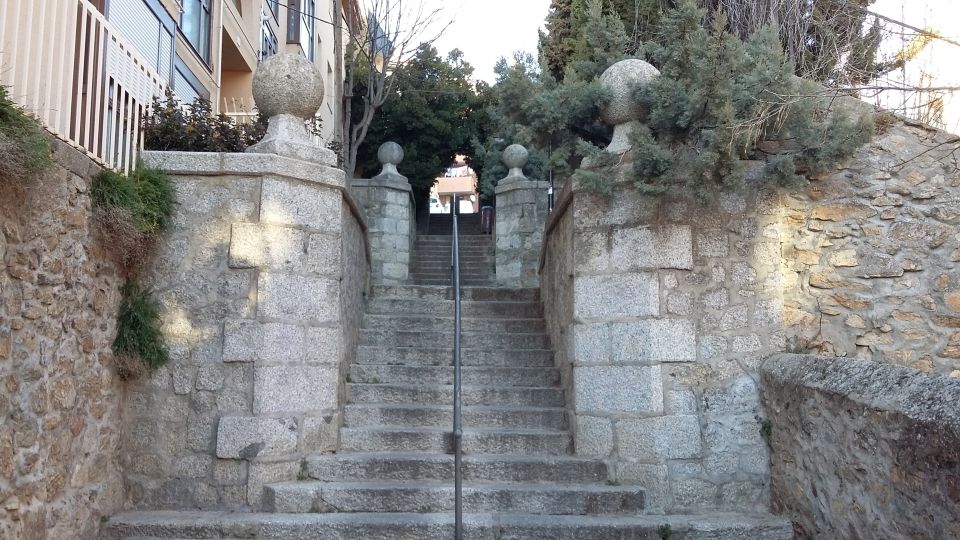Tips and Tricks for Private Tutoring
So, you want to find private classes, make a little extra money, and practice your teaching skills outside of the classroom?
Fantastic! Madrid is a great place to find private tutoring and to expand your network of students outside of the classroom. Ever since the beginning of the Language and Culture Exchange Program several years ago, Spain has seen a significant increase in English language learning both inside and outside the classroom. Nowadays, there are so many families, young professionals, and adults ready to hire a private English teacher so that they can get ahead in their learning and careers. Ultimately, this means good news for you! Most language assistants don’t have to do much other than show interest in order to find a private tutoring gig.
However, some of you might be asking: how do I go about looking for one? What is tutoring like? What’s the general demographic that I will be teaching? How much should I charge? What am I expected to do? Of course, the answers to these vary. My personal experience might be different from someone else’s; I personally found CIEE’s orientation pointed me in the right direction regarding tutoring. On the other hand, someone else might have been perfectly fine on their own. Nevertheless, I will outline below a few points you must consider before searching for tutoring.

1. Get settled first before diving into the search.
This point might seem obvious, but it needs to be made. You are moving to another country, and there are many things that you will need to adjust to: work, public transportation, a new living situation, language and culture, food, new friends and coworkers, and your own stress. That’s not to mention that you have a lot of paperwork and other “to-dos” to complete so that your life is legal, comfortable and put-together in Spain.
So, wait to start tutoring until you are settled and have everything well on the way of being completed, if not completed entirely. For a reference, I personally didn’t open myself up to tutoring until December. I arrived in late September, and I had a few personal troubles with my legal documents, so I decided to put the private-tutoring on hold until everything was fixed.

2. Ask your teachers, bilingual coordinator, and other staff at school.
Once you have gotten comfortable in Spain and established a good routine, you can start searching. If you feel that you have a good relationship with your native coworkers and-or you want to teach kids from your school, I recommend asking the teachers, staff, and bilingual coordinator. They already know the students and families that go to your school, so they might be aware of which parents want a little extra instruction for their children. In fact, some of those teachers and staff might have family members or kids themselves whom are interested in classes.
In my experience, I simply asked my teachers and the Head of Studies if they knew of any parents who wanted some extra classes. Not too long after asking another teacher approached me about tutoring her nephews. I agreed to teach them on Mondays and Wednesdays.
Not interested in teaching children from your school? No worries. If you ask the teachers and staff at your school, you might also be presented with opportunities to teach adults, even the teachers or staff themselves. I have been asked twice to give private lessons to two different groups of business professionals. Although I had to decline both offers because of conflicting schedules, I still appreciated being presented with the opportunities.

3. If that doesn’t work, look on Facebook and Google.
Of course, if you want nothing to do with your school or no opportunities are available, the Auxiliares Facebook page and Google are great tools at your disposal. I would recommend showing some interest on the Facebook page with a small blurb about yourself and your willingness to do private tutoring. There are many offers put up almost every day, so be proactive and respond to them as soon as possible.
As for other websites or companies, I have no experience with them. I have heard of people using the following ones, and they seem very popular. However, if you want a review, I don’t have one.
www.workaway.info
www.babelbridges.org
www.vipkid.com

4. Weigh the costs and know what you want in the end.
As with any decision in life, you must weigh the pros and cons. If you decide to tutor, you will have a great opportunity to practice and improve your teaching skills outside of the classroom. Your network of people you know, especially the natives who live and work in Spain, will grow immensely. You will be challenged to be a better teacher and see the English learning process from a different perspective. Finally, and this goes without saying, you will have a little extra income that you can use however.
On the other hand, private tutoring is another commitment that you must keep. Since you are teaching around the schedules of a family or an individual, the classes might not be every week. The person might even cancel them after a few weeks or months because of a change in schedule, motivation, housing, etc. Of course, you could end up with a child that is only doing the classes because of his parents, which only makes your job harder.
I say none of this to discourage you from tutoring. However, you should know what you are getting into as well as what you want out of your experience in Spain. If you want to travel a lot or spend your free time doing various things, you probably should reconsider private tutoring. It takes up a lot of time because you must travel to the person or family and design lessons for them. If you don’t want to teach children after school or put in the work for more complicated lessons, you probably should reconsider private tutoring. The general demographic of students is under the age of 18 and working, professional adults over 30.
If you like a challenge and want to get paid to teach, however, private tutoring is for you. I love it and would recommend it to anyone who is interested in English language learning and teaching.

5. Be committed and listen to what your student wants.
Like I mentioned above, your tutoring is a commitment that you must uphold, though sometimes the students or their families don’t do the same. You should be prepared to teach that student for several months and to put in the work for lessons.
How do I make lessons? And what am I expected to do? Well, there is no simple answer to those questions, but often, a student will already have a book from school or previous classes. They even might tell you what they want or at least what they like and dislike doing. Therefore, I would suggest using that information to design fun and engaging lessons.
For a child, bookwork can be a little boring and mind-numbing after an entire day of it, so I try to space out active and energetic mini language games within my lessons so that my students don’t get lethargic. I love Simon Says and any game that gets a child to stand up and move around the room. I even get a little dramatic myself so that my students laugh at my expense and feel like they are having fun.
In classes with adults, they will certainly have English language material and a set of goals that they need your help accomplishing. Adults are much more motivated in and engaged with your lessons. Additionally, their attention spans are longer than that of children. However, this means that lessons have generally more complicated language and the students can take in more at once. Consequently, I would focus on more functional language (i.e. making suggestions, ordering food, etc.) and discussion-based tasks than active games. Mature students want to feel that their time is not being wasted and that they are learning and using the language properly. Therefore, design exercises that get them talking about currents topics and relevant themes while also making use of the target language in the lesson. To get to know them better, I suggest that during the first day you conduct a mini survey about their interests, experience with English, expectations, and so on.
My experience. I teach a young boy from my school who is 9 years old and has an advanced-beginner English level. I used to teach his brother too, but his parents wanted him to start attending a British Academy. I found this opportunity through one of the teachers at my school, who is the young boy’s aunt. I do private lessons on Monday and Wednesday afternoons for an hour each lesson. I charge 10 euros each hour, but on average many people charge anywhere from 15 to 20 euros a lesson. Ultimately, this depends on you and whether you must travel and do a lot for each class or not. I mostly work out of my student’s school books and help him prepare for his various exams. I also like playing simple and active language games that get him moving and laughing. Overall, I love my experience because I see my private tutoring as an opportunity to practice my teaching skills and improve upon my many areas of weakness.
